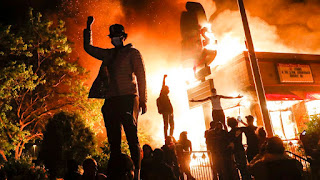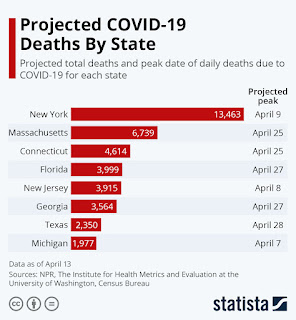A sermon preached on Facebook Live
Sirach 26:10: The Headstrong Daughter
The Feast of Pentecost - May 31, 2020
This sermon can only be
described as Pentecostal. It began innocently enough in one place and then,
without warning, the wind blew and I swear the earth shook and suddenly, I was
in a place I didn’t intend to be but landed right where I should.
It began when a clergy
colleague of mine asked an interesting question. If you could be present at any
event in scripture – in the Hebrew Scripture or in any of the Gospels, or with
the early church in the Book of Acts or with any of the writers of the Epistles
– where would you be?
So many choices, right? How
about a front-row seat to watch creation come together? Perhaps you prefer
being in Bethlehem the night Jesus was born? Or, would you rather have been
right by the side of Mary Magdalene when she peered into the empty tomb and
spoke with the newly resurrected Jesus?
There are many, many other
choices, of course. What are yours?
As I listen to Luke’s account of Pentecost in the Book of ACTS, I didn’t have to wish to have been there. I
could see it and feel it and smell it.
“And suddenly from heaven there came a sound like the rush of a violent wind, and it filled the entire house where they were sitting. Divided tongues, as of fire, appeared among them, and a tongue rested on each of them. All of them were filled with the Holy Spirit and began to speak in other languages, as the Spirit gave them ability.”
Luke goes on to say that
there were people in Jerusalem “from every nation under heaven” and they were
“amazed and astonished” because they were all speaking in their native tongue
and yet everyone understood.
Some thought everyone had had
too much wine, even though it was just nine o’clock in the morning. Others
asked, “What does it mean?”
Some scholars see what
happened at Pentecost as a reversal of the story of the Tower of Babel (Genesis11:1-8) in the ancient city of Shinar, which came to be known as Babylon in
ancient Mesopotamia, which is now located in present-day Iraq.
It was some 100 years after
Noah landed the Ark after the Flood when, we are told, all the people spoke the
same language. Noah’s descendants wanted
to build a tower so they could “make a shem for themselves”.
“Shem” is Hebrew
for ‘name’ but like many words in ancient languages, a “shem” does not just
translate as “name”. Shem is not just a means of identification.
In antiquity, a person’s name
was their identity. It’s what they stood for. So the Tower was to be a monument
to themselves and their skill and their technology. It was an attempt to maintain
their legacy and preserve their posterity for generations apart from God.
But, what really distressed
God is that “the people were ‘echad’” – which is the Hebrew word for “one”.
Yes, that’s right. God was distressed because the people were one. Now, why in
heaven’s name would that be distressing to the God who makes such a big deal
about being “one”?
Well, if you remember the
context of the story, these were the descendants of Noah. If Noah had any one
characteristic, it was that he understood his total obedience to and dependency
upon God.
And now, here they were, several generations later, and the very
people that God had saved from the Flood had lost the understanding of God
being at the center of their lives.
Instead, they were building a Tower – a
monument, a false idol – to their own name and their own skills and abilities
to create something magnificent.
So, God confused their
language so they would no longer be united as one people. God confused their
language so the people would learn their dependence on God so that they might
become united as one people – one nation – under God.
Well, at least, that’s how
the ancients understood the reason that, while they had come from the same
people who spoke the same language, so many different languages came into
being.
The ancient understanding was
that, in the Tower of Babel, “the human spirit” was the driving force behind
the construction of the Tower. On the day of Pentecost, it was the Holy Spirit
calling all people to be one, as God and Jesus and the Holy Spirit are one.
(More on this next week – Trinity Sunday).
As I reflected on the images
of these two stories, I came back to my friend’s question: At which story would
I prefer to have a front-row seat: The Tower of Babel in ancient Mesopotamia after
The Flood or the Upper Room in the City of Jerusalem, fifty days after The resurrection of Jesus?
It was just about the same
time that a strange wind began to blow and I began reflecting on the images
coming across the screen of my laptop and then my television.
At one point in
one of the newscasts, there was a split-screen. On one side were the statistics
and images of those who have tested positive for COVID-19 and those who have
died in the pandemic, in this country, and around the world.
On the other side of the
screen were the images of the protests and demonstrations, followed by the
riots and looting that were in response to the murder of George Floyd – and,
truth be told, the culmination of years of anger and frustration about the violent
deaths of Black people and the persistent rise of racism in this country.
I began to wonder if I had a front-row seat to a modern, confusing Tower of Babel with Anarchist groups and White
Supremacist groups sewing seeds of destruction and chaos, hatred and division
by night with those who, by day, wanted to raise their voices and their
concerns in the same sort of peaceful protests that have been and are the mark
of a well-functioning democracy.
As I considered the images on
the other screen, I wondered if I was witnessing the Spirit of Pentecost, with the
blazing winds of change roaring through every nation under heaven, creating a
new reality in which we all have to work together and sacrifice for the common
good; where words like COVID and virus, quarantine and mask and self-distancing
are understood no matter what language is being spoken.
It was the words of St. Paul
in his first letter to the ancient church in Corinth which have haunted me all
week. In this weeks session of prayer with Anglican Prayer Beads, I used them
as the mantra prayer of the seven “weekly” beads:
“For in the one Spirit we were all baptized into one body-- Jews or Greeks, slaves or free-- and we were all made to drink of one Spirit.” (I Cor 12:13)
It
seems to me that we are involved in two simultaneous epidemics in this country
– Racism and COVID-19.
One is an ancient disease, one is a brand new virus.
Racism is a disease that is the result of the infection of racial superiority.
It grows stronger in the absence of awareness that we are all – each and every
one of us, male and female, young and old, of every nation and creed and tongue
– created in the image of God.
“And, we are all made to drink of one
Spirit”.
When we forget that, we construct our own modern Towers of Babel,
false idols to our own cleverness and skill, and thus sew the seeds of our own
destruction.
We
are also in the midst of a worldwide pandemic which has claimed the lives of
over 100,000 Americans and approximately – at least – 370, 000 people worldwide.
The Coronavirus has swept through every nation under heaven and has not only
taken lives but it has changed our lives forever, exposing the holes and tears
in the fabric of our common humanity, leaving the weak and those who are
vulnerable, the poor and those who are oppressed, in even more perilous
condition.
And,
for those on whom the flames of the Spirit have lighted, this Pentecostal wind
has inspired insight and awareness, leading them to acts of selflessness and
courage, service and generosity, compassion and mercy, and taught us the common
language of kindness and care.
Turns
out, we don’t have to leave our homes to have a front-row seat to some of the
scenes from the Bible. They are happening all over again, right before our very
eyes. Santayana was right: Those who do not remember history are doomed to
repeat it.
Today
is Pentecost, the day we remember and celebrate the gift of the resurrection of
Jesus that he named The Holy Spirit.
Today is the day Jesus appeared to the
disciples one last time in that Upper Room where they had gathered to share one
last common meal with each other. Jesus said to them,
“Peace be with you. As the Father has sent me, so I send you.” When he had said this, he breathed on them and said to them, “Receive the Holy Spirit. If you forgive the sins of any, they are forgiven them; if you retain the sins of any, they are retained.”
May
the words that Jesus spoke to his disciples so many years ago be spoken into
our hearts today, so that we, like the disciples, may know ourselves to be
forgiven and free.
May
we be inspired to follow the example of the first disciples and live boldly and
hopefully into creating a new world, from every nation under heaven,
because we were made to drink of one Spirit.
May
we, too, be amazed and astonished by what we are able to achieve when we
allow the power of the Spirit of God to work through the power of possibility
in the human spirit.
Amen.























